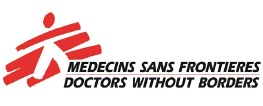MSF: Medecins Sans Frontieres
Have you ever watched the film The Invisibles in which you see a crisis develop in the world and Doctors Without Borders (also known as MSF) is there to help? This organization provides emergency care to victims of armed conflict, natural and man-made disasters and fast-spreading diseases. The group also assists people who have no other way to receive health care. It trains local health workers, provides mental health care, and organizes nutrition and other programs.
Doctors Without Borders was founded in 1971 by 13 physicians and journalists. The founding members believed that people in distress had the right to health care and that there shouldn’t be national borders when people need medical care. They also felt that they had a duty to speak out about injustice, even though it might offend host governments.
Medical professionals, administrators and engineers who give their services for free make it possible for Doctors Without Borders to operate. It has offices in eighteen countries, but has provided aid in more than eighty nations.
This is with the help of local workers and more than two-thousand volunteers. In 1972, Doctors Without Borders conducted its first major relief effort. They helped victims of an earthquake in Nicaragua. This was followed by helping the victims of fighting in Lebanon in 1976, Afghanistan in 1980 and the Russian republic of Chechnya in 1995. In 1999, Doctors Without Borders won the Nobel Peace Prize. The group was recognized for its work in the conflicts in Kosovo and East Timor. Doctors Without Borders is also working to get medicine to poor people. In 2003, Doctors Without Borders was a founding partner in the organization Drugs for Neglected Diseases Initiative (DNDi), which works to create medicines for diseases such as malaria, tuberculosis and HIV/AIDS. The group has played an important role in caring for the victims of disease outbreaks because for them, drug companies have forgotten about the diseases that affect millions of people in developing countries.
But the kind of work that this humanitarian aid group and others do is not without cost. Last year, the head of operations for Doctors Without Borders in the Russian republic of Dagestan was kidnapped. Russian and local officials have been working to solve the case. Doctors Without Borders works in almost 80 countries, and the organization has volunteers from even more countries. The organization typically gets global publicity and praise for its efforts, which is well-deserved for all the good it does.

